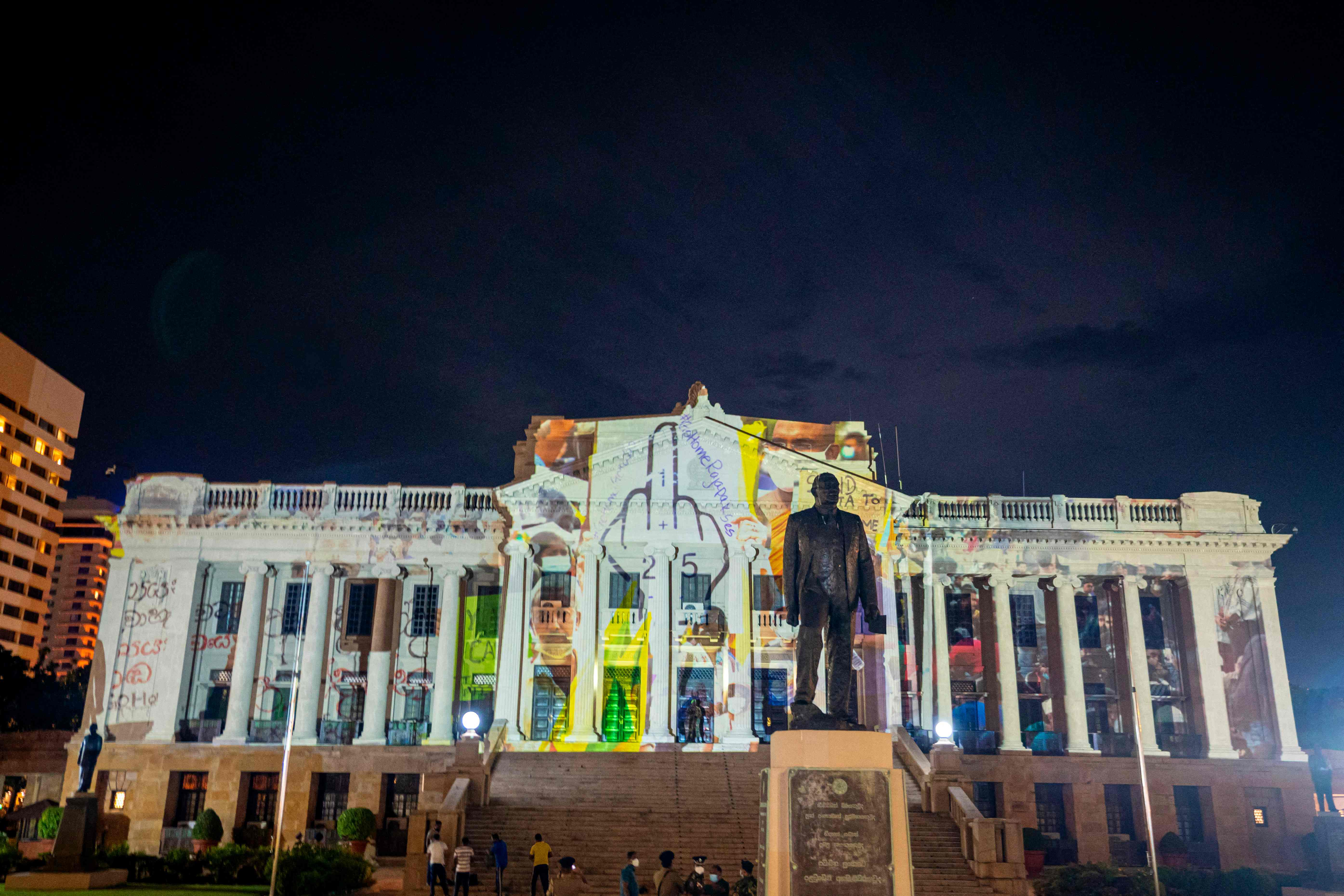Embattled Sri Lankan president appoints 17-member cabinet as protests calling for his resignation continue
Thousands of Sri Lankans have taken to the streets in protest against the Rajapaksas
Your support helps us to tell the story
From reproductive rights to climate change to Big Tech, The Independent is on the ground when the story is developing. Whether it's investigating the financials of Elon Musk's pro-Trump PAC or producing our latest documentary, 'The A Word', which shines a light on the American women fighting for reproductive rights, we know how important it is to parse out the facts from the messaging.
At such a critical moment in US history, we need reporters on the ground. Your donation allows us to keep sending journalists to speak to both sides of the story.
The Independent is trusted by Americans across the entire political spectrum. And unlike many other quality news outlets, we choose not to lock Americans out of our reporting and analysis with paywalls. We believe quality journalism should be available to everyone, paid for by those who can afford it.
Your support makes all the difference.Sri Lankan president Gotabaya Rajapaksa on Monday appointed 17 new cabinet ministers in an attempt to resolve the political disaster in his country as demands for his resignation over the handling of a crippling economic crisis continued to grow.
The president’s brother, Mahinda Rajapaksa, who is the prime minister, was retained in the reshuffle but some other members of the Rajapaksa family and senior politicians facing corruption allegations were dropped from the cabinet in line with calls for a younger administration.
Thousands of Sri Lankans have taken to the streets in protest against the Rajapaksas after struggling with a month-long shortage of food, fuel, medicines and long power cuts due to dwindling foreign reserves.
As the island nation battled its worst economic crisis since independence in 1984, the cabinet resigned on 3 April after irate demonstrators vandalised the homes of some ministers.
Speaking to the new ministers, the president requested their support for an efficient and “clean government”.
“Today, most of the government institutions are under serious economic difficulties and it is absolutely essential to rectify it,” Mr Rajapaksa said.
He called the crisis an “opportunity to bring about the system change that the people expected”.
The opposition in Sri Lanka had rejected an invitation from Mr Rajapaksa to form a coalition unity government while he and his brother remain in power. But the opposition parties have also failed to gain a parliamentary majority.

Demonstraters occupying the entrance to the president’s office shouted “Go Gota Go” and projected messages last night as protests entered the 10th day on Monday. The agitation spiralled last week when President Rajapaksa refused to step down from power and offered to hold talks with protesters, which was met with rejection.
Sri Lanka last Tuesday announced a pre-emptive default on all its foreign debt, estimated to be about $51bn, as a “last resort” to avoid financial meltdown. It said the country would divert its foreign reserves to importing essentials.
It has urged its citizens overseas to send money home to “support the country at this crucial juncture by donating much-needed foreign exchange”.
Newly appointed finance minister Ali Sabry and three other officials left for talks with the International Monetary Fund (IMF) seeking a possible bailout on Sunday.
The IMF and World Bank are holding annual meetings in Washington this week.
“We need immediate emergency funding to get Sri Lanka back on track,” Mr Sabry told Bloomberg Television.
“Our appeal to them is to release it as soon as possible," he added, putting the estimated funding need this year at between $3bn to $4bn. Earlier, a high-level delegation attended an IMF meeting in Washington on 9 April.
Sri Lanka has also turned to China and India for emergency loans to buy food and fuel.

Join our commenting forum
Join thought-provoking conversations, follow other Independent readers and see their replies
Comments